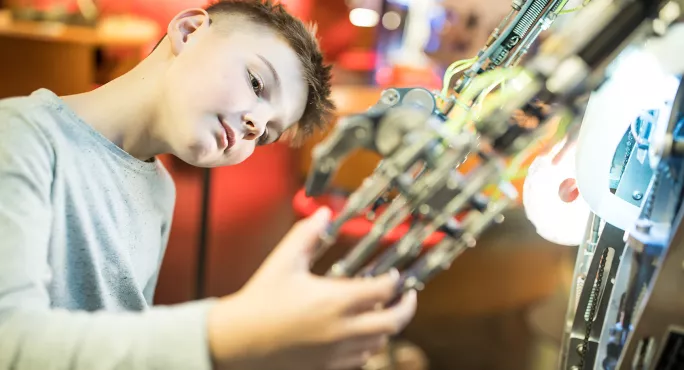Artificial intelligence could transform teachers’ day-to-day lives by reducing workload, the education secretary will say today.
Speaking at the BETT show in London, Gillian Keegan will claim that schools will eventually use artificial intelligence (AI) “to deliver better outcomes for students”.
The speech comes as schools were told yesterday that some coursework contributing to assessment should be done “in class under direct supervision” to address concerns over the misuse of AI, in new exam board guidance.
And it will also coincide with the publication of a statement from the Department for Education, setting out “opportunities and risks” that come with AI for education.
Ms Keegan will say: “AI will have the power to transform a teacher’s day-to-day work. We’ve seen people using it to write lesson plans and some interesting experiments around marking, too.
“Can it do those things now to the standard we need? No. Should the time it saves ever come at the cost of the quality produced by a skilled teacher? Absolutely not.
“But could we get to a point where the tasks that really drain teachers’ time are significantly reduced? I think we will.
“Getting to that point is a journey we in this room are going to have to go on together - and just as we’ve responded to other innovations like the calculator, we’ll use it to deliver better outcomes for students.”
More than two-thirds of school staff (68 per cent) think their workload is unmanageable, according to an annual survey conducted by Tes.
In the Tes Schools Wellbeing Report survey of 5,858 UK-based school staff, the proportion who disagreed that their workload was manageable increased from 65 per cent last year.
The DfE will also be announcing further support to ensure schools “have a safe, secure and reliable foundation in place before they can consider using more powerful technology”.
The department’s digital and technology standards will be updated with new information covering cloud technology, servers and storage, and filtering and monitoring.
There will also be a new digital service aimed at helping senior leaders with their technology planning.
The tool will benchmark their technology against digital standards and suggest areas of improvement. The service will be piloted in partnership with schools in Blackpool and Portsmouth in September 2023, both priority Education Investment Areas, before being rolled out across the country.




